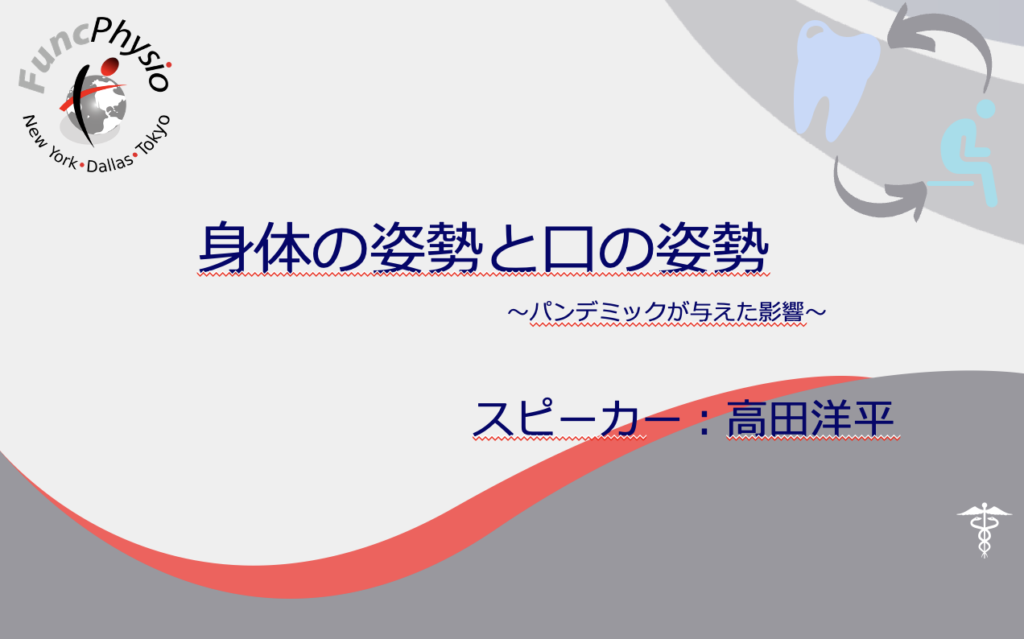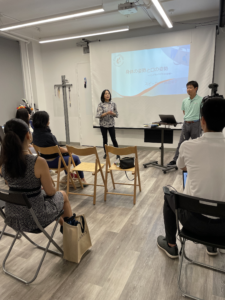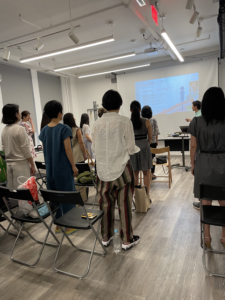JWN (Japan Women Network – New York) at NY FuncPhysio

Post Pandemic, due to the impact of the pandemic, social activities such as wearing masks and remote work have become commonplace. These changes may unknowingly affect our physical and mental health. In this discussion, we will focus on the relationship between oral posture and body posture, as well as their connection to stress.
Posture is a well-known term, but very few people truly understand it. Even medical professionals and physical therapists, who specialize in posture, have only recently started to grasp its true meaning, myself included, after many years of experience as a physical therapist.

During JWN’s workshop, we discussed the concept of “correct posture.” While many people have a vague understanding of good posture, such as “keeping your back straight,” “standing tall,” or “tucking in your chin,” we delved into how to truly understand and execute proper posture.
Human posture is maintained through tensegrity and pressure control. Each part of the body influences and is influenced by other parts. Therefore, the posture of the mouth, eyes, pelvis, feet, and so on, naturally affects each other. The misalignment of one part can have repercussions on others. As a result, it is possible to predict poor oral posture from body posture, and vice versa.
The impact of the pandemic on posture is immeasurable.
Wearing masks alters the position of the mouth and the muscles around it. Prolonged mask-wearing can increase tension in the jaw and burden the muscles around the mouth, potentially leading to temporomandibular joint disorders and jaw pain. Mask-wearing also restricts breathing, increasing the likelihood of mouth breathing, which can cause dry mouth, dental issues, and Mouth Breathing Syndrome, affecting the alignment of various parts of the body.

Additionally, the increase in long hours of desk work and activities at home due to remote work can also affect physical health. Maintaining proper posture and alignment becomes challenging during desk work, leading to problems such as lower back pain and neck discomfort. The increase in sedentary activities at home raises concerns about a lack of exercise and muscle weakness.
The pandemic has also impacted our mental well-being. Restrictions on social activities and the overall uncertainty have increased stress and anxiety. Prolonged stress can cause disruptions in the autonomic nervous system, with the sympathetic nervous system becoming overactive, leading to autonomic dysregulation characterized by physical symptoms such as heightened body tension, insomnia, and appetite changes. Furthermore, stress can have implications for mental health, increasing the risk of depression, anxiety disorders, and psychosomatic disorders affecting joints and the cardiopulmonary system.
In conclusion, the changes brought about by the pandemic, such as wearing masks and remote work, have the potential to impact our physical and mental health in various ways. Therefore, it is crucial to address these changes appropriately. Learning proper breathing techniques and understanding correct posture can be the initial steps to resolving the misalignment of various body parts, autonomic dysregulation, and psychosomatic disorders. This is the message we conveyed during JWN’s workshop.


